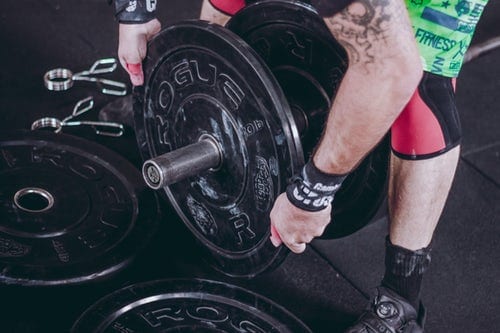How to Retain Muscle as You Age…
04/04/2019
What may be surprising to learn is that once you hit 30, you already begin to lose one percent of muscle mass each year!
Once you hit the third decade of your life it’s important to try and retain as much muscle as you can – not only to keep your body shape looking athletic, but to also keep your metabolism high, and maintain a good level of muscle which will enable you to keep working out and to do everyday actives more efficiently, things such as: walking up a flight of stair, gardening and just general everyday movements.
As you begin to lose muscle, you will see a decrease in strength levels, and you may experience issues with your fitness, health and mobility, as well as being at a higher risk of injury. Therefore, knowing how to retain muscle in your later years is very important…
Monitor Your Muscle Mass
Do you look different now that you’re 30+ years old? Have you lost your shape and gained more body fat, whilst at the same time losing muscle? This is very common as you get older, fat mass tends to go up and muscle mass goes down.
Taking pictures is a great way to assess how you are looking. I’d recommend taking pics every month (or at least every 3 months) to make-sure that you are building or at least maintaining the muscle mass that you have.
You could also keep an eye on your weight, and ask a personal trainer to take your body fat percentage and asses things such as strength, and muscular endurance.
Eat a Healthy Balanced Diet
To prevent nutritional deficiencies and build muscle, you should eat three balanced meals each day – some dieticians would argue that you may need 4 meals per day to maintain muscle.
Make sure to eat a wide variety of foods, including lean proteins such as chicken, oily fish, and eggs, and whole grains such as multigrain bread and rice. Focus on eating plenty of fresh vegetables and fresh fruit, however, try and steer clear of canned fruit that is usually accompanied with syrup.
Also, it goes without saying, try and refrain from eating too much junk food. Cakes, ice cream, cookies, and rich desserts all contain high levels of sugar, which can have a negative effect on your body and will encourage fat storage and muscle loss (two things we want to avoid as we age).
Use Your Muscles
Eating a good amount of protein and being physically active are key traits to keeping you in shape. While muscles are made up of protein(s), simply eating protein is not enough. You need to lift weights too. Ideally you want to focus on strength based exercises, things such as: deadlifts, squats, pull ups, bench press, lunges, etc. A good personal trainer will advise you on what to do based on your current level of fitness, body fat percentage, age, weight, etc.
If you are unable to get to the gym, there are resistance training programmes which you can follow, and which only take 20-30 minutes to complete. You can do things like bodyweight exercises such as: push ups, sit ups, crunches, planks, squats, etc.
Having just 20-30 minutes of physical activity each day can make a huge difference, especially if you start doing this from a younger age (the earlier you start the better). It can be easy for weight to creep up while your muscle mass decreases in your 30s, 40s, and 50s, so the longer you leave it, the more difficult it will be to start.
Supplements
There are various supplements that you can take to help retain muscle mass. Various studies have shown that those with low blood levels of vitamin D are commonly linked with lower muscle strength. Taking vitamin D supplements can help improve muscle mass and muscle function.
Also, studies conducted on mice found that their muscular function improved when given NAD+. If you are wondering what is NAD+ and what are its benefits, make sure to check out Vitamonk where you can find out more information on how the supplement may help you to retain muscle mass.
Watch Your Alcohol Intake
Consuming large amounts of alcohol over a long period can weaken your muscles. Therefore, as you get into your later years, you should monitor how much alcohol you are consuming. Those who misuse alcohol may experience frequent muscle pain, and weaker muscles.
Keeping an eye on your weight, using supplements such as vitamin D, as well as doing regular daily exercise can all be hugely beneficial in retaining muscle mass as you age. You should also monitor your diet and make necessary changes to keep a healthy metabolism, which can reduce the risk of gaining bad weight i.e. body fat.